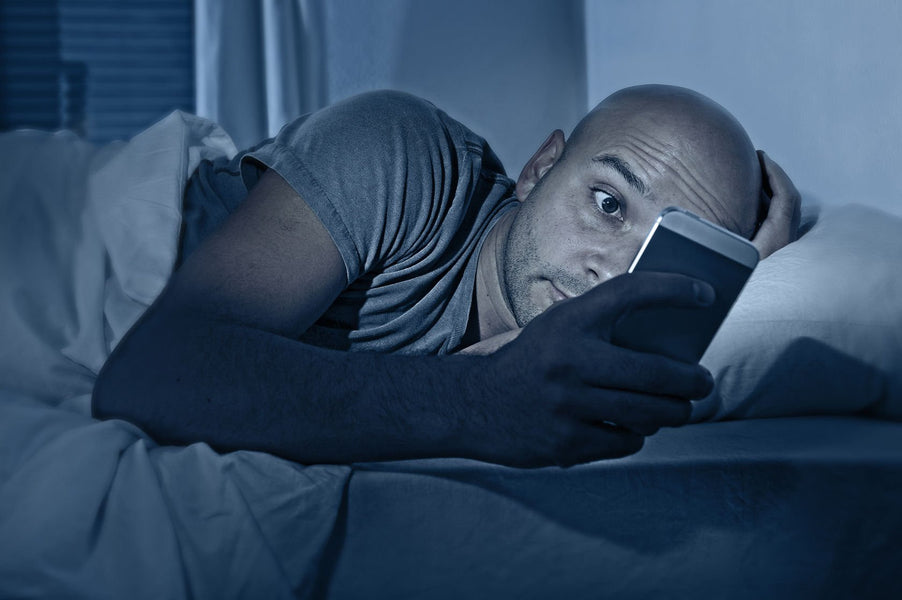
On January 27, 1880, Thomas Edison was granted U.S patent 223,898 for “An electric lamp for giving light by incandescence.” He had invented the world’s first commercially viable light bulb and within a couple of decades every home and business throughout America and Europe was illuminated with artificial light.
As the founder of General Electric he had a vested interest in rebranding the night as the beginning rather than the end of the day used his celebrity status to boast that he needed only four or five hours of sleep each night. As Alan Derickson writes in his book Dangerously Sleepy: Overworked Americans and the Cult of Manly Wakefulness, beyond selling light bulbs, Edison also saw himself as a man on a mission to enlighten Americans on his idea of achievement through ceaseless work and minimal sleep.
“Edison spent considerable amounts of his own and his staff’s energy in publicising the idea that success depended in no small part in staying awake to stay ahead of the technological and economic competition,” writes Derickson.
I’ve written previously about the health dangers of this kind of heroic wakefulness. In fact, Edison could not have been more wrong. The latest research shows that successful, healthy people are actually the ones who get more sleep. And although it has now been well established that the average adult needs somewhere between seven and nine hours sleep each night, many of us aren’t even getting close.
Nevertheless, Edison would be proud of his legacy today. We live in a world that never sleeps. Smart phones. Smart tablets. Smart televisions. An Internet that operates 24 hours a day. With the push of a button, at any time, we are instantly in contact with friends, family and total strangers all over the world, or fully immersed in the latest updates from the office. When everything and everyone is always switched on, it can be hard to switch off.
Researchers are particularly concerned about the impact of blue light, which comes from our computers, televisions, phones and e-readers. This is because one of the major influencers of sleep is the amount of light that enters your eyes. In 2001 it was discovered that exposing your eyes to light in the blue end of the visible spectrum suppresses the production of melatonin, the sleep hormone. Essentially, when you spend time with a blue light-emitting device, your brain thinks it’s daylight and your natural rhythm, which evolved over thousands of years, is thrown off course.
One study led by Charles Czeisler, a Professor of Sleep Medicine from Harvard, found that people who read electronic books before they went to bed took longer to get to sleep, had reduced levels of melatonin and were less alert in the morning. Another study from researchers in Berlin showed that exposing healthy subjects to 30 minutes of blue light an hour before bedtime delayed the onset of REM sleep by 30 minutes.
The good news is there are some fairly simple strategies to reduce exposure to blue light before bed. The most obvious is to avoid blue light emitting devices after sundown. Harvard Medical School suggests avoiding blue light two to three hours before you go to bed, while the US National Sleep Foundation suggests turning all electronic devices off at least an hour before bed. This includes your phone, laptop, PC, TV and tablet.
There is another solution that means you may not have to forego all your modern evening entertainment luxuries. A small 2009 study tested whether giving people orange tinted glasses, which block blue light would help their sleeping difficulties and the results were promising. They reported a significant improvement in both sleep quality and mood, and they weren’t too put out by having to wear their orange glasses around the house either. A 2015 study on teenage boys had similar results.
Based on this encouraging research, one of the solutions to our chronic sleep difficulties may well be simple and cost effective. The orange glasses I bought from eBay cost about $3.00 and although they’re not exactly glamorous, I wear them at night if I’m working on my computer. We’ve also replaced the normal globes in our lamps at home with orange or red ones that we got inexpensively from our local hardware store. There are a host of smart lamps coming onto the market and I predict that it won’t be long before we’ll all be tailoring our homes to suit our natural biological rhythm. We've found that the changes around our house have made a world of difference. After the sun sets our house is aglow with orange and red hues. We've all found it much easier to fall asleep at night and I think it especially makes a difference for my two-year old son who recognises these lighting cues as time to initiate his bed time routine.
As for the evil blue light gadgets that may be delaying your sleep, some researchers are calling for mandatory filters on all blue light emitting electronic devices. But in the meantime, the tech world is also starting to catch on. Software such as F.lux adjusts a device’s display colour temperature according to its location and time of day.
As you contemplate all this information and decide whether you need to make some adjustments around your own home, I’ll end on one final note about the prodigious Thomas Edison and his super human powers to work through the night. Though he would have been loathe to admit it, Edison was in fact a notorious cat napper, with beds set up in his lab and library. It’s likely the great inventor got far more sleep than he claimed… More to come on the benefits of napping in another post soon.

~ Thomas Edison Taking Nap Under a Tree, 1921.





 The Connection (DOWNLOAD-TO-OWN)
The Connection (DOWNLOAD-TO-OWN) My Year Of Living Mindfully - Book
My Year Of Living Mindfully - Book




